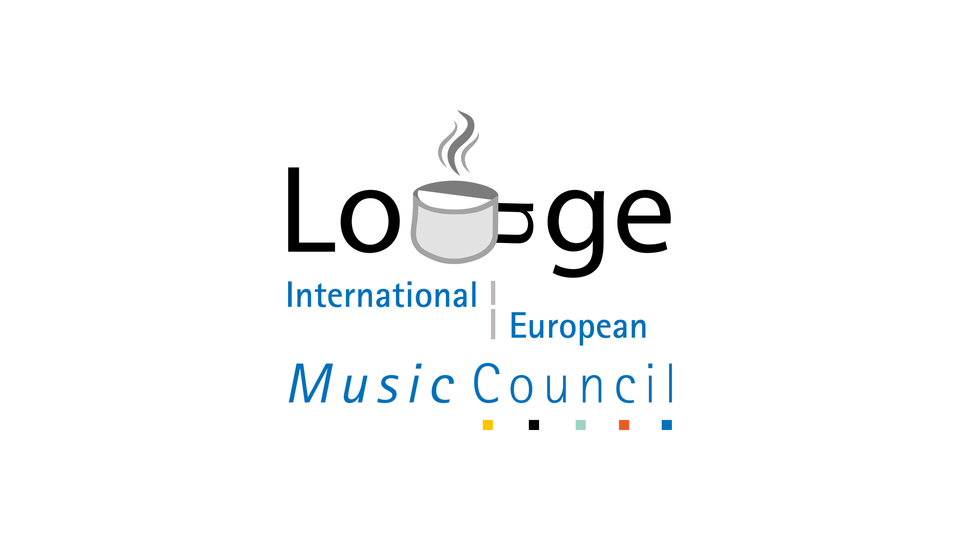Online Lounge on Online Tools & COVID-19
14 May 2020
► Mary Luehrsen, NAMM
presented music education online tools and NAMM webinars
"Music is connecting communities around the world.
Dedication and passion never left the room, it just changed rooms."
NAMM provided webinars with a capacity of 50 000 people with tips on how to make & provide music lessons online in reaction to the switchover to online lessons & activities in the USA mid-march. Online music teaching could focus more on listening, score reading, composition & improvisation. A Facebook group offering demonstrations on various tools for music educators was also used to share good practices. There was a real mutual assistance with music teachers around the world sharing tools & best practices without any competition.
However, there is a need for better understanding of air contamination, looking at similar researches on SARS etc. Schools & governors are working on setting guidelines for social distancing in schools but there are a lot of uncertainties with music classes & ensembles. The need to push the US federal government to release funds for schools, which were all impacted differently, was also underlined.
→ Find Maria Luehrsen's presentation on the video here at 00:22.
Check the powerpoint presentation here and the webinars here.
► Sonja Greiner, European Choral Association
presented the tool "Digital Stage"
"No full choir rehearsal before a long time.
A virtual choir is not a real choir, only the ended and edited product sounds like a choir."
ECA was working on the biggest problem of collective singing: latency on online tools makes it very hard to practice online together. There is a need for a platform, which enables musicians & singers to play simultaneously together. Many tools are available but it is difficult to find one which can be used by all, without any limitations and too high latency. ECA has been asking the question of how it will be possible to perform & rehearse together after the crisis. Digital stage is an online tool working reducing latency down and optimising the platform for music-making. Digital choirs are also not the same as real time choirs as it only the edited product, which sounds like a choir but the singers don’t sing at the same time.
→ Find Sonja Greiner's presentation on the video here at 21:32.
Check the presentation here and the website here.
► Till Skoruppa and Philippe Dalarun, European Music School Union
presented the outcomes of a survey they made on online music education tools in Europe
"Necessity is the mother of innovation.
Topics of digitisation have been on the agenda for a long time, now we need to move discussions to quality, online pedagogy..."
EMU has conducted a survey in its membership to see, which are the needs of its members and how they would be affected by the COVID-19 crisis. The topic of digitalisation was on the agenda for a long time but was difficult to implement for all. However, now that all the music schools had to move to digitalisation, the discussion has moved to quality: which pedagogy works well, what are the technical limitations... Necessity is the mother of innovation, music schools have been very reactive and creative in reaction to the crisis even though all of their work has been affected. There is a lot of data on how to practice music with use of technology, but there is therefore a need for deeper discussions on the topic.
→ Find Till Skoruppa's presentation on the video here at 40:21.
Check the survey here.
► Barbara Revelli, European League of Institutes of the Arts
presented management tools and the feedback process, incl. general remarks on online teaching
"The way in which we work in a remote way is very different.
Demands much bigger planning, project management and collaboration."
ELIA has been working on supporting its members and the physical & mental health of its students and staff. There is a need to stress on the fact that teachers should not be expected to deliver the same content online as in on-sight classes. The learning experience will not be the same but teachers shouldn’t be stressed because they are expected to have the same quality online. One best practice example was given by the University of Luzern, which created a blueprint to create clarity for students & staff so as to lower stress, emotional & improve well-being. ELIA has put together a list of online tools to help increase communication and keep all connected to each other while working remotely. Going back to the spaces we used to work in will require more planning and it is needed to think of how we can plan the future of teaching. Arts association & networks will have to collaborate to underline the need for support from governments.
→ Find Sonja Greiner's presentation on the video here at 56:26.
Check the presentation here and list of tools here.







